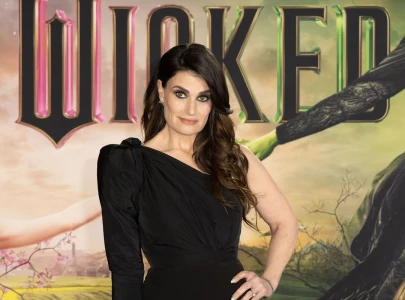1707465792-0/dramas-(1)1707465792-0.png)
Indian actor Sushant Singh recently voiced his concerns about the state of the Indian television industry and drew comparisons with Pakistani dramas, emphasising the need for change. In a video shared by Bollywood Bubble Television, Singh questioned the content produced in India and raised issues about the treatment of individuals who speak up against injustices.
The star said, "Our neighbouring country that we keep calling our enemy, look at their content. Look at your own content. Why are we like this? Why do we make people who complain the victims? Is this the message that we want to send out? That don't raise your voice against us, we don't want to change. It is what it is. Either bear it or leave."
He added, "If you speak up, you lose work. Is that the message broadcasters and producers want to send to the world? This feudal mindset? This is our question. Do we not want to change? Otherwise, say that you don't want to change."
Singh then referred to a documentary by Opender Chanana titled, Living on the Edge: Deglamourisng Bollywood, which has received nearly a hundred international awards. He spoke about the screening of the documentary that left the international community in shock, given that it highlighted the working conditions in Bollywood. Furthermore, Singh shed light on actors' unions, and how the Indian Broadcasting Forum was approached to initiate a dialogue to facilitate change in the prevailing working conditions.
Singh said, "Whether or not our actors agree, whether or not shooting closes down when there is a strike call, let this message be very clear: there are some very powerful unions backing us and all the international players - all of the channels included, given their parent country is elsewhere, barring one or two - you will be questioned by our sister unions at your home bases."
"Please do not ignore us," he stressed. "We don't intend to be a small voice anymore. We will go to any extent necessary...We will fight. Try to victimise us? We'll still fight back." Singh then pointed out instances of alleged malpractices, including the appointment of an arbitrator with a clear conflict of interest and the refusal to acknowledge lawyers during arbitration. He narrated an incident where 19 members of the association participated in the arbitration of two members, raising concerns about transparency and fairness in the industry's dispute resolution processes.
Have something to add? Share it in the comments





-(1)1730443275-0/Copy-of-Untitled-(60)-(1)1730443275-0-270x192.webp)

1730095495-1/WhatsApp-Image-2024-10-28-at-11-04-18-(1)1730095495-1-270x192.webp)









COMMENTS
Comments are moderated and generally will be posted if they are on-topic and not abusive.
For more information, please see our Comments FAQ